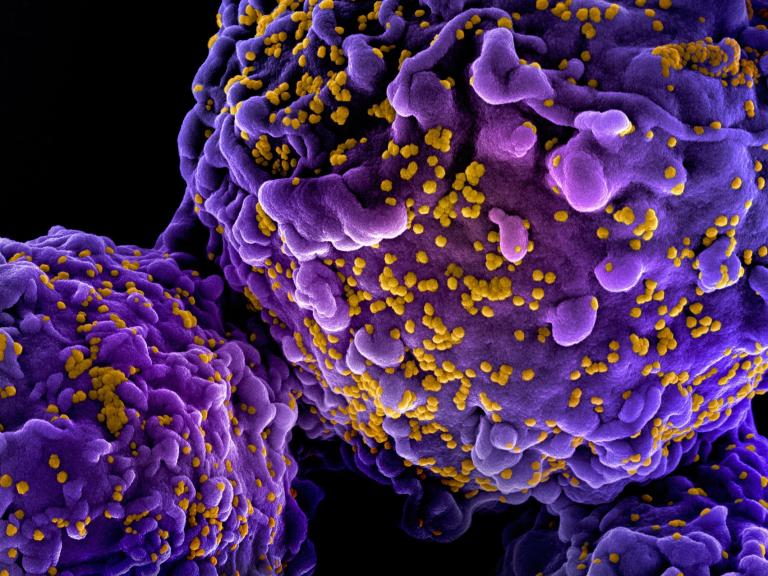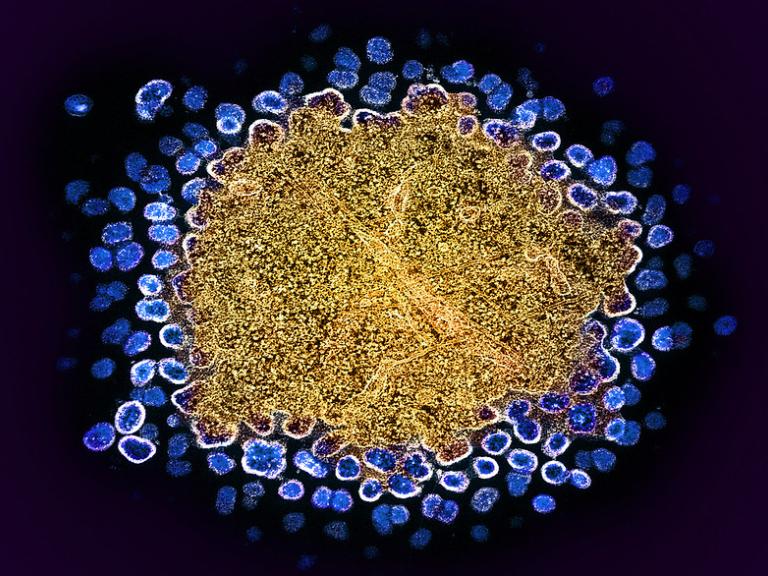Human immunodeficiency virus, commonly known as HIV, is a virus that targets the immune system and can lead to acquired immunodeficiency syndrome (AIDS) if left untreated. HIV can be transmitted through sexual intercourse, using needles that have been in contact with bodily fluids containing HIV, and during pregnancy, childbirth, or breastfeeding—a concept known as vertical transmission.
Over the past four decades, tremendous progress has been made to advance the science of HIV testing, prevention, and treatment. Safe and effective antiretroviral therapy (ART) allows people with HIV to achieve a typical lifespan. When taken as prescribed, ART can suppress the amount of virus in the blood to a level so low that it cannot be transmitted to sexual partners—a concept known as Undetectable=Untransmittable (U=U). Antiretroviral drugs can also prevent vertical HIV transmission. Several highly effective HIV prevention methods are also available including pre-exposure prophylaxis (PrEP), post-exposure prophylaxis (PEP), and voluntary adult medical male circumcision. Long-acting modalities are making it possible to treat and prevent HIV without a daily pill. Nonetheless, more progress is needed to reduce the rate of new HIV diagnoses and HIV-related deaths, and to address the health disparities that affect HIV outcomes. A preventive vaccine and a therapeutic cure are critical to ending the global HIV pandemic.
NIAID supports basic, preclinical, and clinical research to discover, develop, and test biomedical and behavioral HIV interventions, and collaborates across the NIH to mitigate HIV-related coinfections and conditions that disproportionately affect people with HIV, especially as they age, including chronic diseases and inflammation, tuberculosis, sexually transmitted infections, viral hepatitis, and mpox.
Highlights

NIH Statement on World AIDS Day
Together with our partners, the National Institutes of Health (NIH) commemorates World AIDS Day and affirms our commitment to bolstering the extraordinary gains achieved in HIV science and to persevering until we end HIV-related illness and stigma. As we mark this observance, we celebrate the people who enable scientific progress, honor the loved ones and leaders we have lost, and reflect on the work that remains to ensure the health and life quality of all people affected by, and living with, HIV.

U.S. Clinical Trials Begin for Twice-Yearly HIV Prevention Injection
Two clinical trials have launched to examine a novel long-acting form of HIV pre-exposure prophylaxis (PrEP) in women and people who inject drugs. The mid-stage studies will assess the safety, acceptability, and pharmacokinetics (how a drug moves through the body) of lenacapavir, an antiretroviral drug administered by injection every six months.
Clinical Trials
NIAID and the National Institutes of Health (NIH) conduct ongoing clinical research on HIV infection and other immunological disorders. Read more about the active clinical trials below:
HIV Testing Sites & Care Services Locator
Related Public Health and Government Information
To learn about HIV/AIDS risk factors, screening, and more information on how to prevent and treat HIV, visit the Centers for Diseases Control and Prevention (CDC) HIV/AIDS site.
HIV & COVID-19
COVID-19 and People with HIV from HIV.gov.


